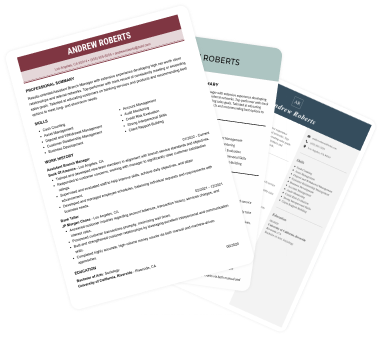Create a professional CV now!
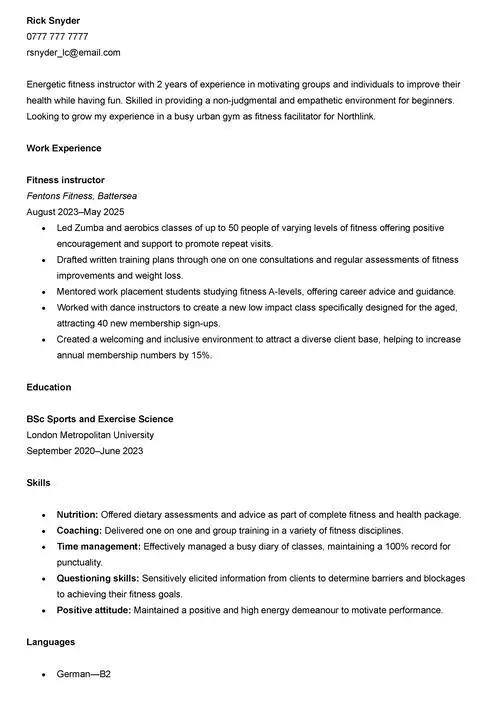 NO
NO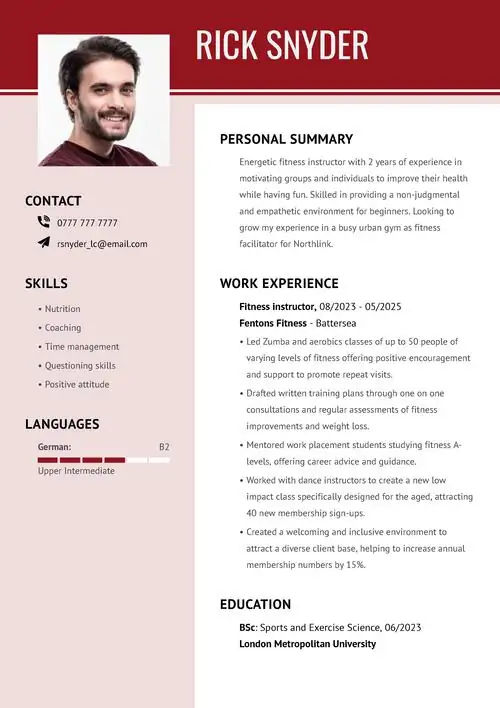 YES
YESLast updated on 19 December, 2025
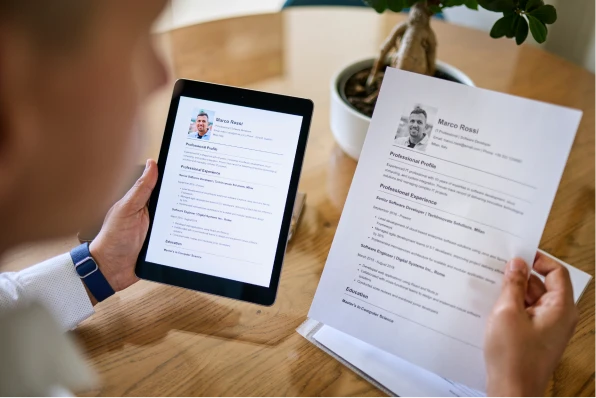
Soft skills are essential to every workplace and a universal requirement for career success.
They’re also difficult to quantify and define for most people, making it challenging to select soft skills for a CV effectively.
Give me just 5 minutes, and I’ll make you an expert in this matter. You’ll learn precisely what soft skills are, why they’re so important, and how to list soft skills in your CV.
Key Article Insights
Create an effective CV in minutes. Choose a professional CV template and fill in every section of your CV in a flash using ready-made content and expert tips.
Create a professional CV now!
 NO
NO YES
YESWe created the sample on the right using our builder. See other good CV examples like this one.
Soft skills are transferable abilities related to the way you interact with and work with other people. They’re also known as interpersonal skills or people skills. Examples of soft skills include communication skills, emotional intelligence, problem-solving, and teamwork.
The meaning of soft skills is more apparent when they’re contrasted with hard skills: hard skills are abilities specific to particular professions. Hard skills can be easily evaluated and learned through courses or at university, while soft skills are immeasurable and developed through self-reflection and practice. For example, you can take a language course and have your abilities measured against an agreed framework. However, it’s much harder to teach soft skills, such as leadership, and even more challenging to measure their effectiveness.
Soft skills are important for employers because they’re essentially related to the way you interact with and communicate with other people—and that’s something that every job requires. That makes soft skills such as communication, teamwork, and problem-solving a universal requirement for business success.
In fact, in the modern workplace, soft skills are considered even more important than hard skills. In an age of AI and increasing automation, many tasks that require hard skills are being taken over by machines; however, those involving the complex use of soft skills still require the human touch.
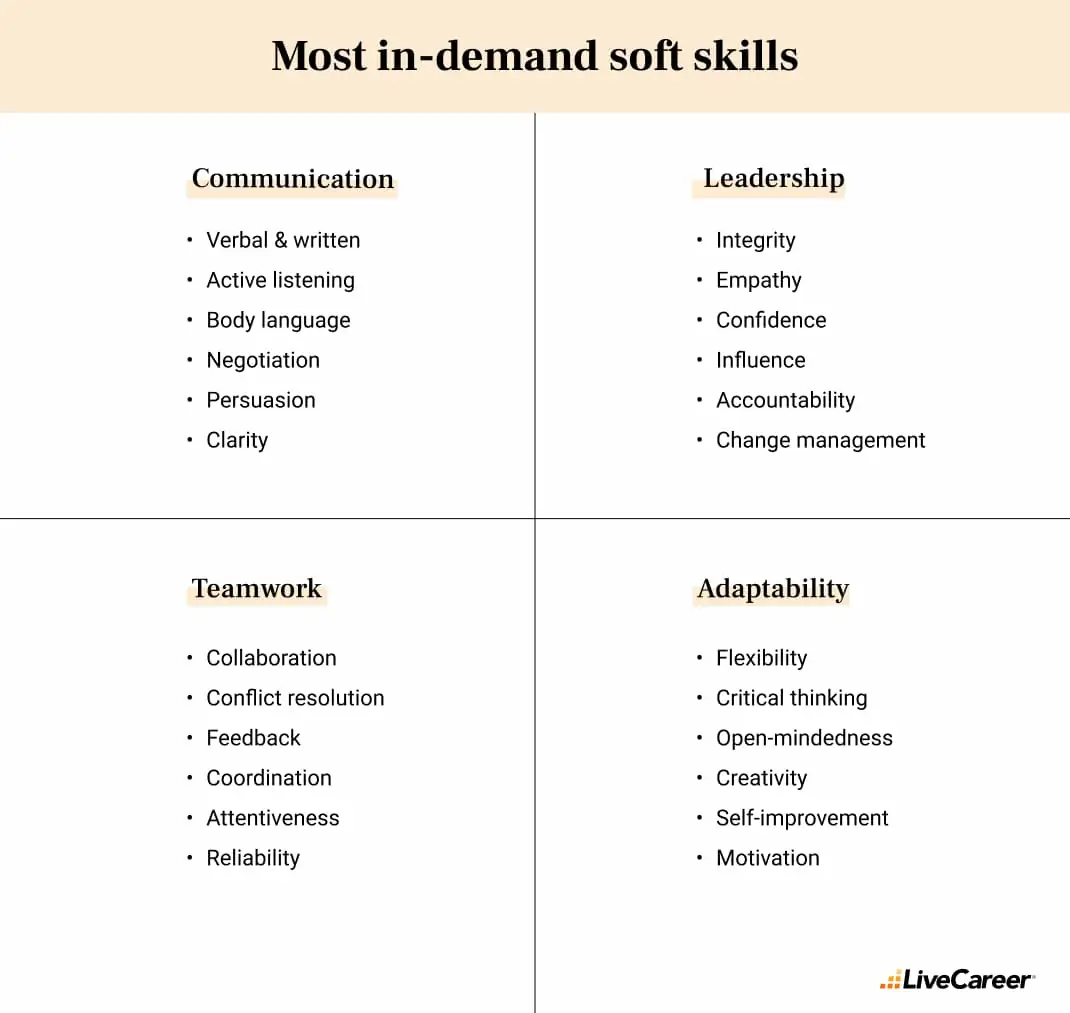
Soft skills can be broken down into categories. They cover a very broad range of attributes, so this is a good way of making sense of them.
Absolutely deserving of its number one spot, communication skills are consistently ranked among the top soft skills that employers seek. Good communication is essential between colleagues and customers alike. It’s related both to how you communicate your ideas and how you respond to communication with others. This soft skill is the key to productive interaction. Specific examples of communication skills include:
Likely, you often rely on your colleagues to work effectively as a team and deliver the very best results. Teamwork is a soft skill that involves many abilities, such as:
According to the World Economic Forum report, 67% of surveyed employers view leadership as one of the core skills for their workforce. Leadership is all about motivating, influencing, and guiding others to achieve individual or mutual goals. Examples of leadership skills include:
Your emotional intelligence is a measure of how effectively you manage and respond to your own emotions and those of others. It allows you to offer support to others when required, de-escalate conflict and adapt your tone of communication for maximum impact. This soft skill involves multiple abilities, such as:
The most successful people are those who are able to adapt themselves and change their approach to respond to changing situations. Here are sample soft skills that prove you know how to bend rather than break:
Do you face challenges at work? The way you respond to them is key to personal growth and the success of the company you work for. Here are some problem-solving skills examples to show you can recognise the opportunities that those problems present:
The motivation to work effectively goes to the very heart of career success and is a highly sought-after skill by hiring managers. No employer wants to hire a candidate who lacks a strong work ethic. Here are a few examples of soft skills that demonstrate a strong work ethic:
Taking initiative means going beyond what is asked of you. It’s about being proactive, seizing opportunities, and taking ownership of tasks without being prompted. Employers value team members who can anticipate needs and act independently. Demonstrating initiative can make you stand out as someone who is truly engaged. Here are a few examples:
The modern workplace is fast-paced and frequently changing, which means setbacks are inevitable. Resilience is the ability to bounce back from adversity, remain optimistic, and maintain performance under pressure. It's about staying mentally strong and keeping going, even when things don’t go to plan. These soft skills are valued in every role and sector:
In a globalised and diverse work environment, the ability to understand, respect and work effectively across cultures is more important than ever. Cultural awareness helps you collaborate without assumptions or bias, which leads to better teamwork and inclusive decision-making. These skills are especially valued in international or client-facing roles:
Overlooking the small things can have big consequences. Whether it’s catching a typo, following a process, or noticing inconsistencies in data, attention to detail is key to producing high-quality work. Employers appreciate candidates who can balance the big picture with precision. Examples of detail-oriented skills include:
If you know how to build and maintain professional relationships, it can open doors to new opportunities. Good networkers are not just sociable; they understand how to connect with others in meaningful, mutually beneficial ways. These skills are particularly important for career development and business growth:
You should know how to write a CV that effectively showcases your soft skills. You won’t be able to fit all the skills I’ve just mentioned onto a one or two-page CV, so choose skills that are specifically tailored to the job you’re applying for.
To tailor the skills list for your CV, review the job advertisement. Hiring managers make it very clear which skills are required for the job. It’s all there and ready for you to refer to, so take some time to study it closely and note every skill mentioned.
Here’s a sample job description to show you what I mean:
Applicants should have the following qualities:
Everything that’s been bolded in the job ad above refers to a soft skill.
Once you’ve identified the key soft skills for the role, make a list of your own qualities, bearing in mind the entirety of your professional experience and education. Then choose 5–10 of those skills to include in your CV.
Create a CV skills section right under your education section. For maximum effectiveness, write a brief sentence that demonstrates how you put that skill into practice.
Examples of soft skills in the CV skills section
Skills
Soft skills can be woven throughout your CV, adding even more proof of the strength of your abilities. As the first section of your CV, your personal profile is the ideal place to start.
CV soft skills example—personal profile
Customer service-focused complaints resolution officer with 3+ years of experience. A specialist in de-escalating conflict and empathising with complainants’ needs. Looking to take my career to the next level as a complaints team supervisor for Orbex.
A strong CV summary will convince the recruiter you’re the perfect candidate. Save time and choose a ready-made personal statement written by career experts and adjust it to your needs in the LiveCareer CV builder.
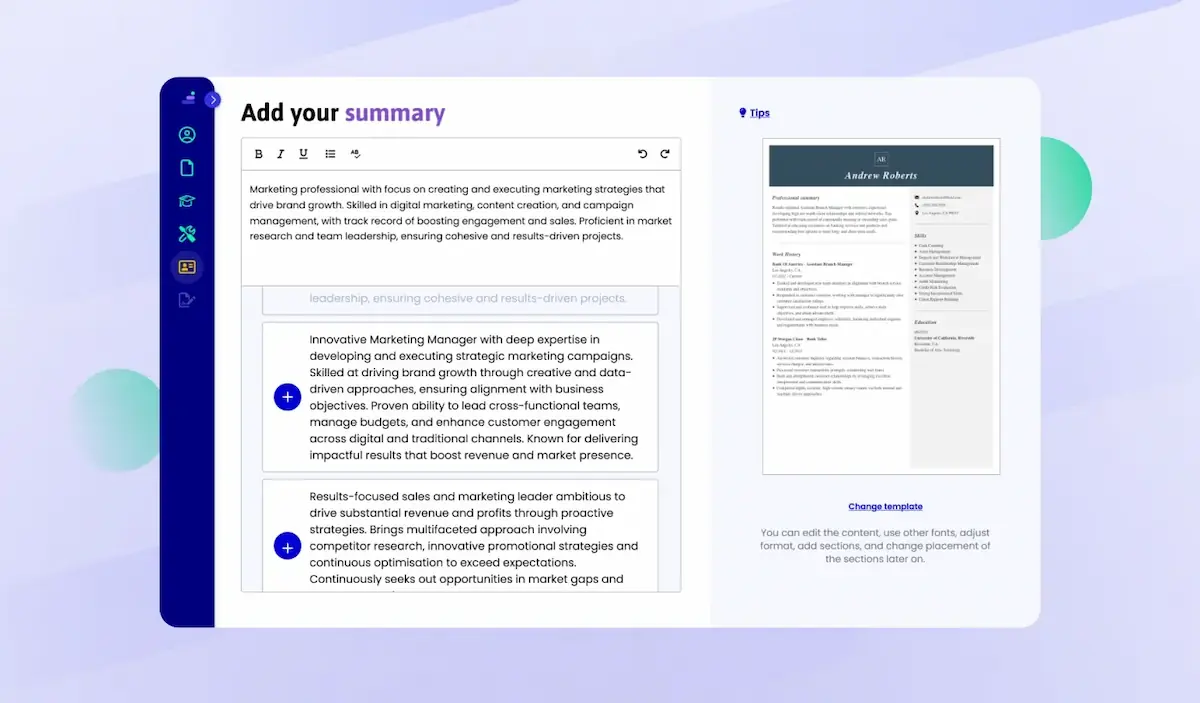
The next part of a standard chronological CV format is the work experience section, and it’s also a great place to include your soft skills.
Soft skills examples in the CV work experience section
Marketing Manager
Biden and Partners, Liverpool
December 2018–May 2025
Next up is your education section. For an experienced candidate, it’s not recommended to add extra detail here, but if you’re writing a school-leaver CV or a graduate CV, it’s an excellent place to add information about your abilities.
CV soft skills example—education section
A-levels: Business Studies, Chemistry, English Literature.
September 2018–June 2020
Kenilworth Academy, Leeds
You can also include additional sections, as they’re a great place to mention extra information that can demonstrate your soft skills. A hobbies and interests section or volunteer experience is ideal.
CV soft skills example—hobbies and interests section
Hobbies and interests
You can even build on your soft skills when you’re considering what to include in a cover letter. It’s the ideal place to add even more detail about how your soft skills can translate to success in your new role.
Below, you can see a sample CV highlighting soft skills. It can serve as inspiration when you’re writing your application!
Rick Snyder
0777 777 7777
rsnyder_lc@email.com
Personal Statement
Energetic fitness instructor with 2 years of experience in motivating groups and individuals to improve their health while having fun. Skilled in providing a non-judgmental and empathetic environment for beginners. Looking to grow my experience in a busy urban gym as fitness facilitator for Northlink.
Work Experience
Fitness instructor
Fentons Fitness, Battersea
August 2023–May 2025
Education
BSc Sports and Exercise Science
London Metropolitan University
September 2020–June 2023
Skills
Languages
Soft skills might be hard to teach, but with high-quality training it’s certainly possible to improve them and give your career a boost in the process.
The first thing you should do is ask your employer if they offer any courses. Most larger employers recognise the importance of upskilling their staff and offer training on a variety of subjects.
Alternatively, take a look at what’s on offer from the government. They’ve recognised that skills shortages have continued to increase and could potentially harm the UK economy. So, provision has been put in place to offer training.
There are remote training options, too. For example, the Open University has provided quality training for decades, and popular websites such as Udemy and Coursera also offer a wealth of training opportunities.
Once you’ve completed your soft skills training, practice and get honest feedback from colleagues, so you can get an objective view of how to improve.
You don’t have to be a CV writing expert. In the LiveCareer CV builder you’ll find ready-made content for every industry and position, which you can then add with a single click.

Want to learn more about skills for a CV? Check these guides:
Thanks for reading, and good luck with developing soft skills as well as your career!
Our editorial team has reviewed this article for compliance with LiveCareer’s editorial guidelines. It’s to ensure that our expert advice and recommendations are consistent across all our career guides and align with current CV and cover letter writing standards and trends. We’re trusted by over 10 million job seekers, supporting them on their way to finding their dream job. Each article is preceded by research and scrutiny to ensure our content responds to current market trends and demand.
Category: CV Help
Crafting a job-winning CV is all about showcasing your unique skills and experiences. Start with a strong personal statement that highlights your career goals and achievements.
Try Our CV Builder Now